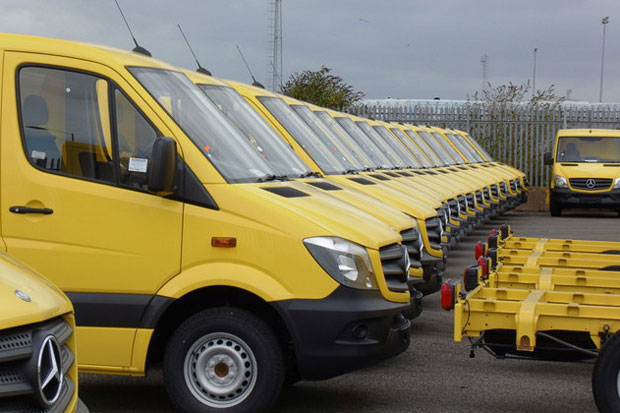17 February 2020
Government action called for to help van fleets ‘plug-in’
Enthusiasm among fleets to operate electric vans is being hampered by constraints that require Government intervention, according to the Freight Transport Association (FTA).

It says that 90% of fleets that were already operating electric vehicles planned to expand their operations within the next three years.
However, according to a new FTA report, further electric vehicle adoption across van fleets would require the Government to urgently address a range of limitations.
Separately there have been fleet industry calls for the Government to keep in place the Plug-In Car and Van Grants for several years to enable a still embryonic sector to truly take-off. The £3,500 Car Grant is due to be withdrawn at the end of March, while there is currently no defined end date for the Van Grant, although it is believed to be the same time. It is hoped that Chancellor of the Exchequer will include an extension of both Grants in his Budget Statement on March 11.
This week the British Vehicle Rental and Leasing Association (BVRLA) urged the Chancellor to “preserve” the Grants. It urged the fleet industry to collectively write to their local MP and ask for their support in securing, what it called, “long-term Government support for the vital Grants”, which helped bridge the price gap between electric vehicles and their petrol or diesel counterparts.
Gerry Keaney, chief executive of the BVRLA, of which Activa Contracts is a member, said: “The Grants need to be maintained in some form until at least 2025.”
Meanwhile, chief among van operators’ frustrations are the limited vehicle-types available, which 71% of survey respondents who decided against operating electric vehicles cited as the primary reason.
For a number of years, the FTA says it has urged manufacturers to progress the development of heavier electric vehicles over 3.5 tonnes, as well as models such as tippers and pickups.
In publishing the report, the FTA said that it would like to see more definitive timelines from manufacturers as to when such vehicles would be available. In the meantime, the FTA has asked the Government to recognise the limitations when implementing local and national policies on vehicle access, for example in relation to the entry criteria for the plethora of Clean Air Zone being introduced in towns and cities nationwide.
In 2018, the Government announced a five-year derogation allowing drivers with a standard Category B licence to drive alternatively fuelled commercial vehicles of up to 4.25 tonnes GVW rather than the normal 3.5 tonnes for a petrol or diesel commercial vehicle.
It was hoped that the announcement would help to open the large panel van market to electric vehicles. But, to date, that has not happened.
Fleet operators also view grid capacity as a severe limitation to the ongoing shift to electric vehicles. The FTA said that businesses must not be expected to incur the cost of upgrading the electricity infrastructure.
The two key costs of workplace charging are the price of the unit and the installation costs, including digging trenches for foundations, running in cables, fixings, parking bay markings and signage.
Future demand may also have an impact on electricity capacity across a business with any requirement for an upgrade likely to be expensive and require conversations with the distribution network operator.
Currently, the Government’s Workplace Charging Scheme is a voucher-based initiative that provides support towards the up-front costs of the purchase and installation of electric vehicle charge-points, for eligible businesses, charities and public sector organisations. It provides £500 per chargepoint socket up to 20 sockets per applicant business.
Denise Beedell, the FTA’s policy manager for vans and urban, said: “While businesses within the logistics industry are keen to play their part in reducing carbon emissions, the Government must find a fairer way of funding the necessary grid upgrades, as well as ensuring on-street public charging facilities can be used by commercial electric vehicle operators, not just private cars.”
She continued: “While the report shows there is incredible determination to create positive change across the logistics industry, it also identifies significant barriers that remain, preventing further uptake. FTA - the business organisation representing the sector - is calling on Government to address these issues which include grid capacity constraints as well as limited vehicle types and vehicle availability, if the roll out of the UK’s electric vehicle fleet is to continue.”
The survey was conducted across a range of fleet operators from small, local businesses to large, international fleets.


